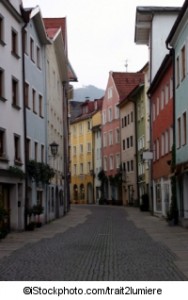 It must be a sign of the times, that Chinese buffets have started asking their customers not to waste food.
It must be a sign of the times, that Chinese buffets have started asking their customers not to waste food.
In case you are not familiar with the concept: Chinese restaurants in Germany offer you a buffet for a set price, from which you can eat as much or as little as you like. The only thing you usually have to pay extra for are the drinks.
You might think of it as an “all-you-can-eat” type of offer.
Except that some customers take more than they can manage, meaning that food gets left on the plate and thrown away.
This is, of course, a waste and it must be something that is on the increase, as I have now seen two restaurants that have signs up about it.
The first one had a large sign over the buffet asking you politely not to take too much, but to come back as often as you liked.
The second one took a more draconian approach by way of a sign on the door, informing the patrons that they would be charged an extra 2 Euros per 100g of food left over.
Whilst I can understand the principle, I think this may be taking things a bit too far. Perhaps a quiet word from the waiter might be better? Or a polite sign at the buffet as in the first restaurant? Although it is a shame that they even have to resort to such measures at all.
But considering the speed at which some Chinese restaurants clear the plates during the midday rush (resulting in the diners using multiple plates from the buffet), I can see discussions ensuing along the lines of “I was going to eat it, but you took the plate away before I could” to avoid paying the fine.
So whilst I would never myself consider intentionally putting too much food from the buffet onto my plate, I might invest in a pair of pocket scales. Just in case.

 For several months, one topic has been in the news regularly in Germany: Google Street View.
For several months, one topic has been in the news regularly in Germany: Google Street View.